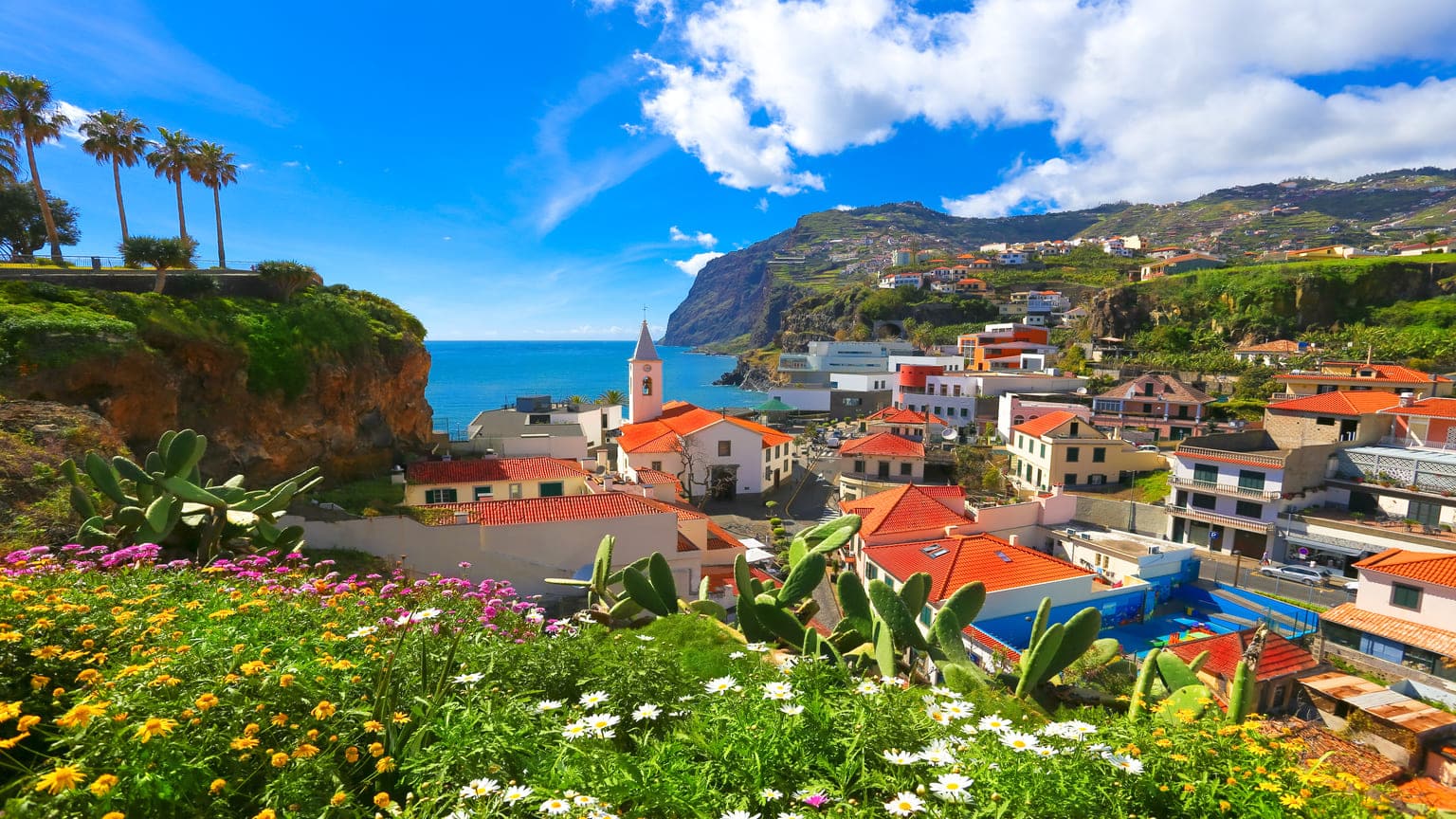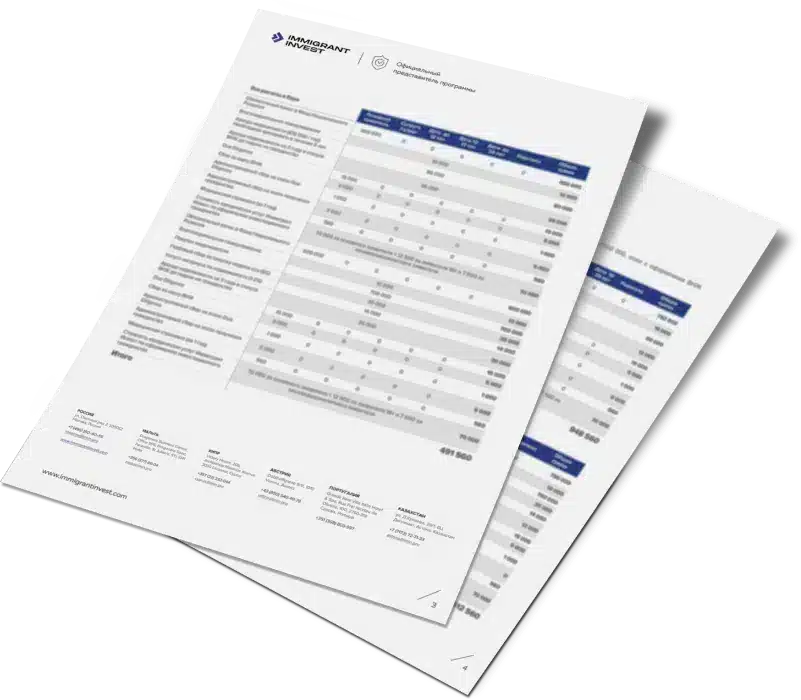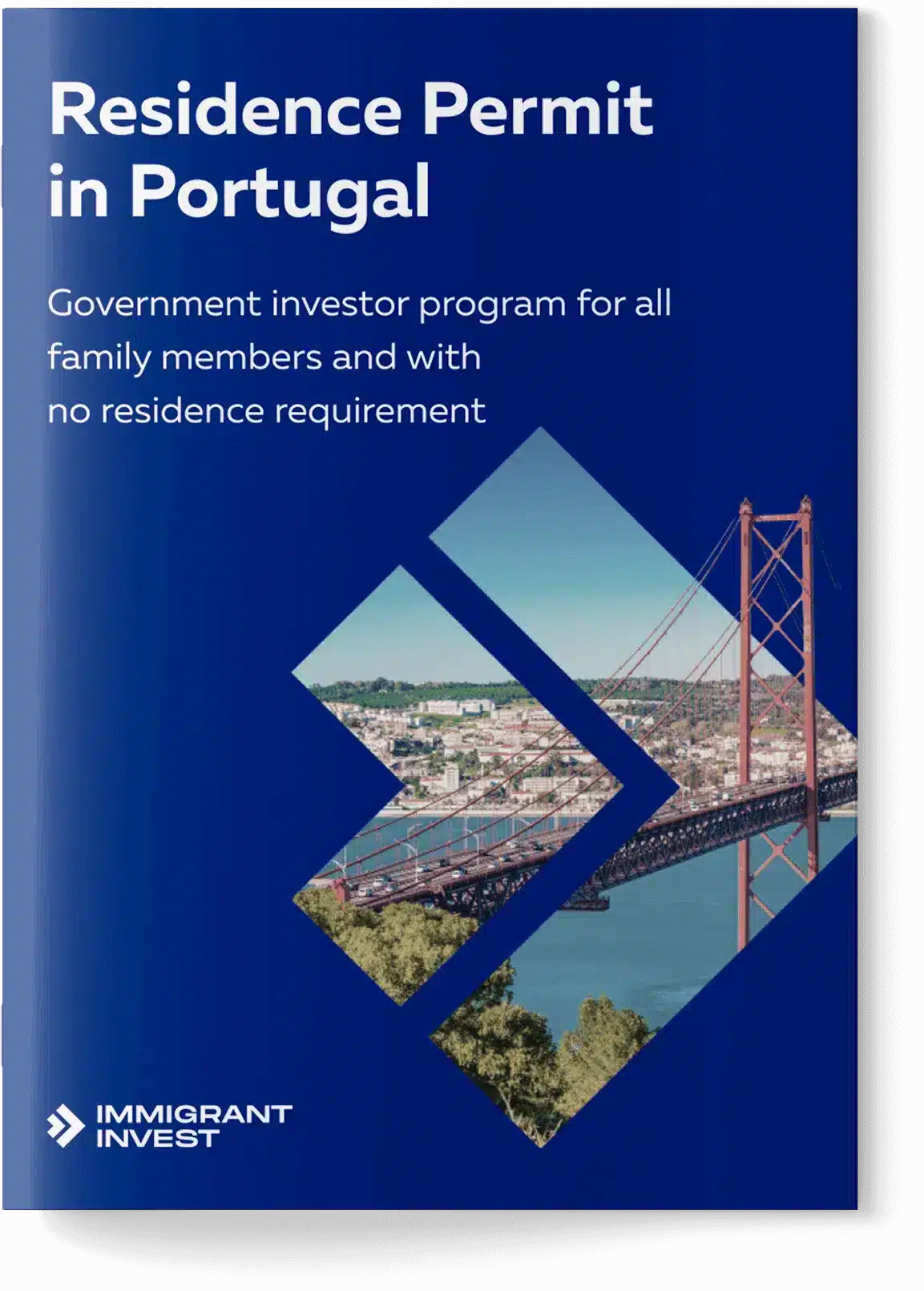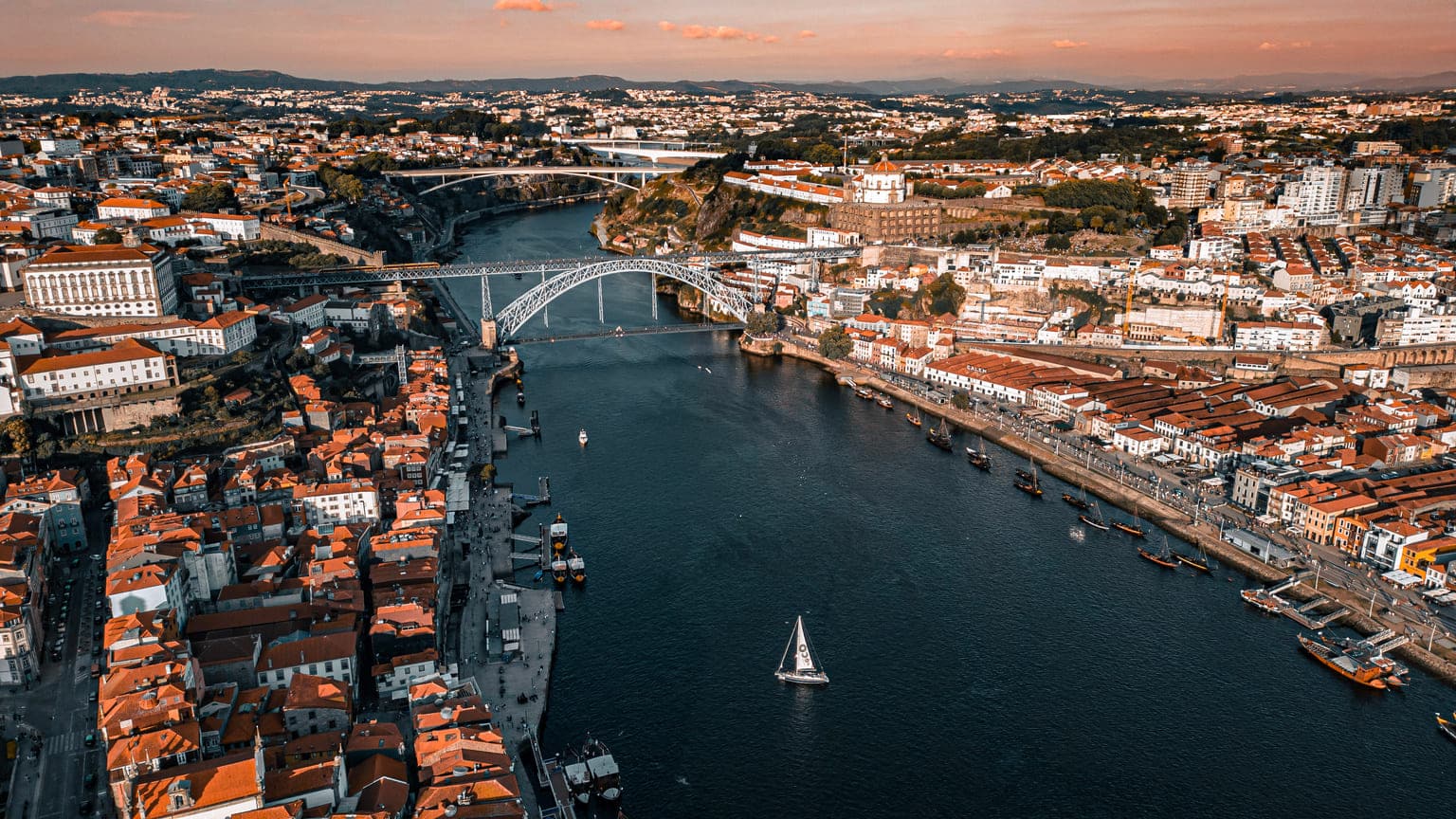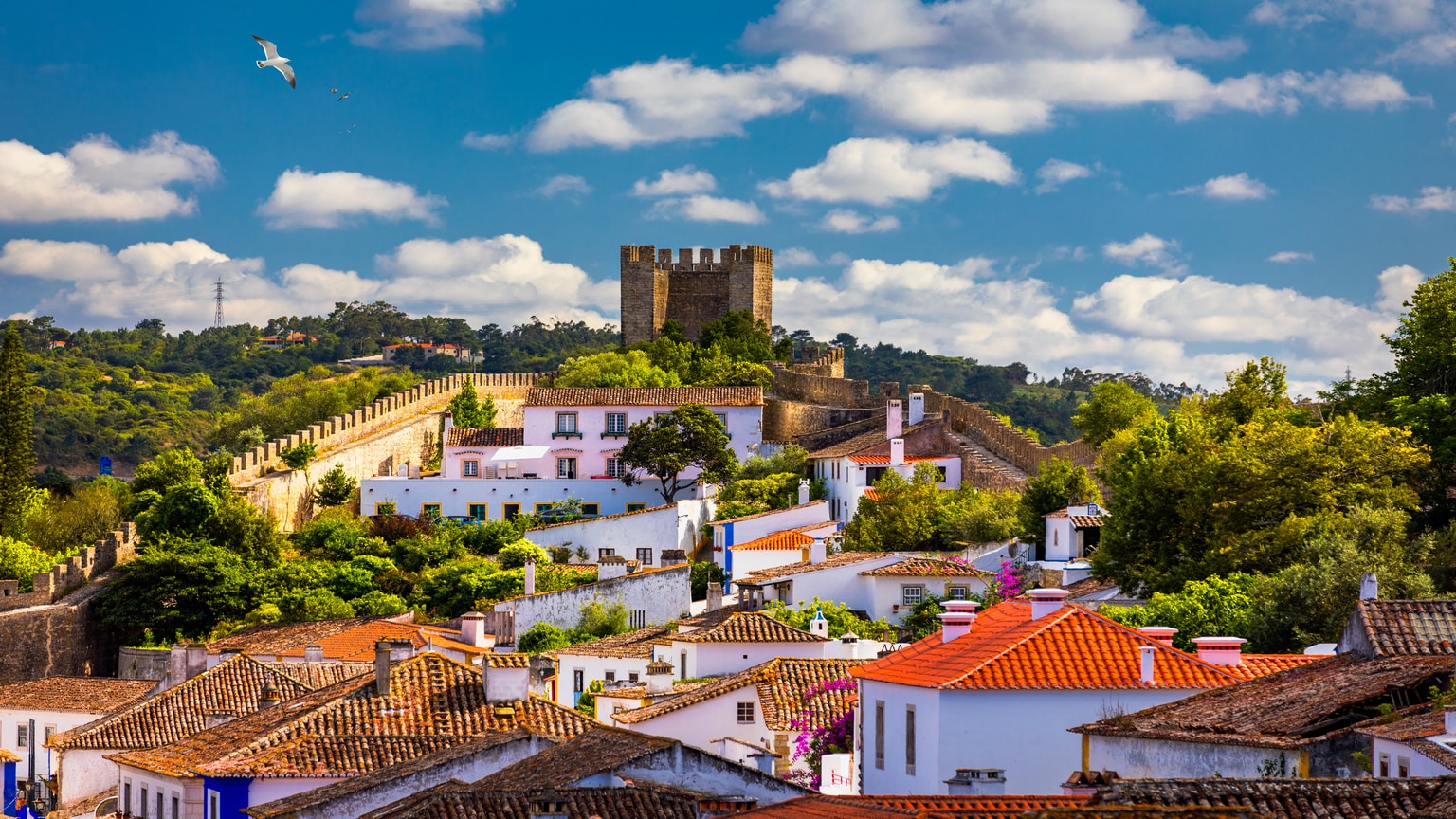What is Portugal residency?
Portugal residency is the legal status permitting foreign nationals to reside in Portugal for a prolonged duration, often with renewal options and a pathway to permanent residency or citizenship.
Residency permits in Portugal are categorised as temporary or permanent, based on the chosen program or visa type. Temporary permits, generally valid for one to three years, are renewable provided the holder continues to fulfil the necessary criteria. Permanent permits are lifelong.
Portugal offers several pathways to residency, including:
- Investment. The Golden Visa Program enables investors and their families to gain residency in Portugal through qualifying investments like purchasing fund units, job creation, or supporting cultural projects. Investment thresholds and requirements vary.
- Employment. With a Portuguese job offer, one can apply for a work visa and residency. The employer typically sponsors the employee’s application.
- Passive income. This visa is for individuals with stable passive income sources outside Portugal, meeting specific financial requirements, allowing them to live in the country.
- Retirement. Residency is available for retirees and pensioners who demonstrate a stable income and meet financial criteria.
- Remote work. Digital nomads earning over €3,000 monthly can obtain residency, appealing to those with well-paid remote jobs.
- Study. Foreign students at accredited Portuguese institutions can receive a student residence permit, valid for the duration of their studies.
- Family reunification. If one has close relatives who are legal residents or citizens of Portugal, they might be eligible for residency through family reunification.
After five years of uninterrupted residency, one may qualify for permanent residency or citizenship in Portugal, depending on the circumstances and the residency program they initially pursued.
Residence permit by studying
A person accepted to a Portuguese university has a right to obtain a residence permit for the whole period of study. Firstly, the residence permit is issued for one year, which can be renewed for equal periods.
To apply for a residence permit by studying, one must provide proof of the following:
- registration in the higher education institution;
- tuition payment required by the higher education institution, if applicable;
- evidence of having means of subsistence in Portugal.

Residence permit by work
One needs to be employed by a Portuguese company to obtain a residence permit by work. Your employer must apply for a work permit from the Portuguese Labor Authorities. The type of permit you should get depends on the kind of work you will perform.
A standard residence permit can be obtained by most employees of Portuguese companies. It is issued for two years and can be renewed for three more years. After that, an applicant can apply for permanent residence or citizenship. To prove employment, one provides a labour contract.
A residence permit for teaching activities is issued for persons who seek to teach in Portugal. It is issued for two years at once and can be renewed for three more years. To prove a right to obtain a residence permit, one needs to provide a contract of employment or invitation letter issued by an educational or vocational training establishment or research centre.
A residence permit for highly qualified specialists is given to engineers, doctors, and scientists. It is also issued for two years and can be renewed for three more. The applicant who is a subordinate worker must provide an employment contract of one year or more. Remuneration must be at least 1.5 times the national average gross annual salary or three times the index value of social support.
Residency by family reunification
Relatives of Portuguese residents and citizens can apply for a residence permit by family reunification. The duration of this permit aligns with the length of the resident family member's existing permit. If you are a relative of a Portuguese citizen or a resident with a permanent residence, you will get a renewable residence permit for two years.
Among family members who can apply for residency are:
- a spouse or non-marital legally recognised partner;
- underage or incapable children dependent on the couple or the spouse;
- minors adopted by the applicant or their spouse;
- adult children who are dependent on the applicant or their spouse and live with the applicant as well as study at a Portuguese university;
- parents of the applicant or their spouse who are dependent on them;
- underage siblings that are in the applicant’s custody.
An applicant must prove family bonds by providing documents: marriage certificate, birth certificate, certificate of incapacity of children of age, etc.
Residence permit for digital nomads
The Digital Nomad Visa, tailored for remote workers earning at least €3,040 monthly, is ideal for those seeking a coastal lifestyle and community engagement in Portugal. It comes in two forms: a one-year temporary stay visa, allowing multiple entries without residency permit eligibility, and a four-month residency visa, permitting two entries and the option to apply for a two-year residency permit.
Applicants can also bring immediate family members. Required documentation includes a valid passport, passport photos, employment contract, income proof, criminal record certificate, accommodation proof in Portugal, and health insurance.
Residency for retired people
To obtain and maintain a Portugal residence permit, retired people need to fulfil three conditions:
- Buy real estate for a price that is higher than the average one. It varies from €80,000 to €120,000, depending on the region.
- Prove they have income outside Portugal that is at least €500 per month for the main applicant and an additional €250 per month for their spouse. Income can come from different sources: entrepreneurship, pension payments, apartment leasing, etc. The only condition is to be able to prove income officially.
- Live in Portugal for at least 183 days.
Residence for financially independent individuals
Individuals with a stable income from outside Portugal can obtain residency through a D7 visa. This visa permits them to apply for a residence permit upon arrival in Portugal.
Initially, the residence permit is valid for two years, and can subsequently be renewed for an additional three years.
The D7 visa has specific requirements:
- Applicants must rent or purchase property in Portugal, with no specified cost requirements, but it should be adequate to house them and their family.
- A minimum monthly income of €820 is required, which can be sourced from employment, property leasing outside Portugal, royalties, dividends, interest, or pensions.
- Applicants must live in Portugal for at least 1.5 consecutive years or a total of 16 months over two years.
Family members of an investor obtaining residency via the D7 visa can also secure residency through family reunification. Eligible relatives include spouses, minor children and siblings, and financially dependent parents of the investor.
Other ways to become a Portugal resident
Training. This residence permit is given for six months or the duration of the training period and can’t be renewed. The applicant must provide a contract with a professional training company or body.
Volunteering. This residence permit is granted to those who volunteer in Portugal. It is issued for a year or the duration of the vocational training and can’t be renewed.
A volunteer needs to provide the following documents:
- a contract with the hosting entity responsible for the volunteer programme that includes information on the duration and schedule of the volunteer programme;
- a guarantee of covering food and accommodation expenses;
- evidence that the hosting entity has subscribed to insurance on civil liability.
Cultural activity. This residence permit is given to those who participate in a cultural activity on the country’s territory approved by the government. It requires one to provide a work or service contract compatible with a cultural activity or declaration of the entity that carries out the cultural activity. This residence permit is issued for two years and can be renewed for three more.
Can you obtain a Portuguese residence permit while already living in Portugal?
Generally, residence permit applications are processed within Portugal. You need to visit the local Agency for Integration, Migrations and Asylum of Portugal (AIMA) and provide the necessary documents and proof of eligibility for the specific permit.
However, most applicants must first secure a Category D Portugal residence visa from the Portuguese consulate in their home country. It's unlikely to apply for a residence permit while in Portugal without this visa. Applicants typically must return to their home country, obtain a D visa, enter Portugal on this visa, and then pursue residency.
For residency based on work, study, business, family reunification, or financial independence, a D visa is a prerequisite. Exceptions to this process include investment-based residence permits and digital nomad visas: applicants for such permits can obtain Portuguese residency while already staying in Portugal.
5 benefits of having residency in Portugal
1. An opportunity to live, work or study in Portugal. Portuguese residents can live in the country for the duration of a permit. They also can enter the country anytime, even if the borders are closed to foreigners. Therefore, they have a safe haven if something happens in their country of origin.
2. Preferential tax regime. Obtaining the Non-habitual Resident status allows one to pay taxes on the income earned in Portugal at a flat rate. While the income tax rate in Portugal depends on how much money one earns, the highest rate can be 48%. With the Non-habitual Resident status, the tax rate is always 20%.
The status is given for 10 years and can’t be renewed. Only new tax residents can apply for it. To do so, they need to fulfil one of the following requirements:
- have lived in Portugal for more than 183 days in the last year;
- purchase a residential property in Portugal and use it as a permanent residence;
- serve on a ship or aircraft of a company registered in Portugal on December 31st of the reported year;
- have been in public service in the foreign mission of the Portuguese government for the last 12 months.
All applicants also must not be Portuguese tax residents and not pay taxes in the country for 5 years before applying for a Non-habitual Resident status.
Portugal has phased out the preferential tax regime for a majority of new residents. Foreign individuals who secure residency in Portugal prior to December 31st, 2023, are required to apply for tax benefits by the set deadline of March 31st, 2024.
3. Travel visa-free within the Schengen Area. A Portuguese residence permit gives its holders a right to enter the Schengen countries without visas and stay there for 90 days out of a 180-day period.
4. Citizenship in 5 years. After five years of holding a residence permit, a person can apply for Portugal permanent residency or even citizenship. To be able to apply for it, one needs to live in the country for 183 per year and prove knowledge of Portuguese on the A2 level.
5. Relatively low cost of living. Portugal is one of the least expensive countries in Europe. For example, a family of four would need around €2,000 per month without rent. At the same time, a family of four would need almost €3,000 without rent for the same period to live in Germany.

Portugal residency by investment: Golden Visa
The Portugal Golden Visa Program presents one of the most straightforward routes to acquire residency in Portugal. This program is particularly appealing for investors as it does not require extended periods of stay in the country; a minimal commitment of just 7 days is sufficient.
Applicants for the Portuguese residency have five investment options to choose from:
- Investment in fund units. With a minimum investment of €500,000, investors are required to retain their fund units for a minimum of five years. Upon completion of this period, the returns, after deducting any commissions, are reimbursed.
- Business investments. Investing €500,000 or more in business ventures, coupled with the creation of a minimum of 5 job positions.
- Corporate establishment. Launching a company that results in the creation of at least 10 job opportunities. In less populated areas, this requirement can be reduced to 8 jobs. It is noteworthy that employees do not need to be Portuguese citizens or hold a residence permit prior to employment.
- Cultural support. Contributing €250,000 or more towards the arts and the restoration of cultural heritage.
- Research contributions. Investing €500,000 or more in research activities.
The Golden Visa is initially granted for a period of two years and is eligible for renewal for two additional two-year terms.
Portugal residence permit requirements for investors
To apply for a residence permit in Portugal, applicants must meet specific criteria:
- the applicant must not have any criminal convictions that carry a custodial sentence of over a year in Portugal;
- they should not be under a prohibition of entry in Portugal due to a prior expulsion from the country;
- there must be no record of the applicant in the Schengen Information System;
- the applicant should not be listed in the Agency for Integration, Migrations, and Asylum of Portugal Integrated Information System (AIMA) for reasons of non-admission as per Article 33 of the Aliens Act;
- the applicant is required to possess health insurance recognized by the Portuguese National Health Service.
Required documents for obtaining a residence permit in Portugal
The application for a residence permit can be filed online. In general, the list of documents required for the application is the following:
- a passport or other valid travel document;
- evidence of sufficient means of subsistence;
- evidence that the applicant has adequate accommodation;
- permission for AIMA to check Portuguese criminal records (except for those under 16 years of age);
- supporting evidence of registration within the Tax Authority.
The applicant must also provide additional documents applicable in every specific case and two coloured photos taken recently.
Process of obtaining residency in Portugal: the Golden Visa as an example
The process of obtaining the Golden Visa takes around 8—10 months. It consists of several steps.
It is required if a person applies for residency by investment. During preliminary Due Diligence, a licensed agent checks an investor and their family members against different databases and on the Internet. It reduces the risk of refusal to 1%.
In the case of the Golden Visa, you need to choose a suitable option and make an investment. That might be purchasing fund units, business investments, etc.
When the investment is made, the licenced agent starts to prepare documents for the application. They also translate and notarise them, as well as fill out government forms. Then, the documents are filed electronically with the AIMA, the Portuguese Immigration Office.
To receive a residence card, an investor and their family must come to Portugal to submit their fingerprints.
The process of considering an application takes around 6 months. After the approval, an investor can collect residence permits personally or through a lawyer.
The permits must be renewed two years later. The process of renewing is the same as the initial one.
Validity of Portugal residence permits
The length of validity for a residence permit in Portugal varies based on the permit type and the applicant's individual circumstances.
Temporary residence permits are generally tailored for specific purposes like work, family reunification, study, or business ventures. For instance, a one-year work contract would typically result in a temporary residence permit valid for one year. In situations where the required duration of stay in Portugal is unspecified, these permits are often valid for 2 years.
Permanent residence permits, once obtained, are usually valid for an indefinite period, provided the holder continues to fulfil the necessary eligibility criteria.
Under the Portugal Golden Visa Program, initial residence permits are valid for 2 years, with the possibility of extension for another two years upon renewal. After a five-year period, holders may apply for permanent residency.
The EU Blue Card, specifically linked to a particular employment contract, remains valid for the length of the contract plus an additional three months post-contract expiration.
Portugal RP for UK citizens after Brexit
Post-Brexit, UK citizens are permitted to enter and stay in the EU for up to 90 days in any 180-day period without a visa. Many UK citizens have been exploring alternative options to extend their stay. One of the most attractive solutions is obtaining a residence permit in Portugal.
UK citizens have several pathways to obtain a Portuguese residence permit:
- Portugal Golden Visa is available through the purchase of fund units or other qualifying investments;
- D7 Visa is suitable for individuals with a consistent income from sources outside Portugal.
- Start-Up Visa is designed for skilled professionals planning to invest in innovative projects in Portugal.
- Student Visa suits those seeking to pursue education in Portugal.
- Employment Visa is applicable to individuals who have received a job offer from a Portuguese company.
Permanent residence in Portugal
A permanent residence in Portugal can be obtained only after a temporary residence permit. It can be done in 5 years. The permanent residence is given unlimitedly; however, it must be updated every 5 years.
Permanent residence is not obligatory if you want to obtain citizenship. However, it is a good choice for those whose country of origin doesn’t allow dual citizenship.
The permanent residence gives the same rights as the temporary residence does. That includes the opportunity to live in Portugal, visa-free travel to the Schengen states, and access to high-quality medicine.
Permanent residence holders cannot participate in elections or hold public office.
Getting Portugal citizenship after residency
Foreign nationals can obtain Portuguese citizenship after legally residing in Portugal for a specified duration and fulfilling certain criteria:
- Residency period. The standard requirement is at least five years of continuous legal residence in Portugal. This duration may be subject to variation based on individual circumstances.
- Language proficiency. Demonstrating a competent level of proficiency in the Portuguese language is mandatory.
- Integration assessment. The authorities assess the applicant's integration into Portuguese society. This includes familiarity with Portuguese culture, history, and societal values.
- Clean criminal record. Applicants must have no involvement in criminal activities and should possess a clear criminal record.
- Financial stability. Evidence of financial stability or adequate means to support oneself and any dependents is essential.
Final thoughts: embracing Portuguese residency opportunities
- Portugal offers several residency paths, including the Golden Visa for investors, and visas for work, study, family reunification, retirement, and financially independent individuals.
- Temporary residence permits are generally valid for one to three years, while permanent residency is indefinite but requires renewal every five years.
- Portuguese residency allows for living and working in Portugal, visa-free travel within the Schengen Area, and potential pathways to citizenship.
- The Golden Visa requires minimal physical presence in Portugal and offers various investment options. The minimum investment amount is €250,000.
Frequently Asked Questions
A residence permit is a document given to foreign nationals who desire to reside in a specific country. The period it is issued depends on the country and type of permit.
Some residence permits allow one to work on the territory of the country that issued them, and some — don’t.
There are many ways to get residency in Portugal. That includes:
- by marriage or family reunification;
- by work or self-employment;
- by studying;
- by retirement.
However, the easiest way to obtain a residence permit in Portugal is by investment.
With a permanent residence, one can live, work and study in Portugal for an unlimited period of time. One can also travel to the Schengen states visa-free and benefit from an attractive tax regime.
Permanent residence can only be obtained by a person who has held a temporary residency in Portugal for 5 years. The easiest way to get one is to invest. The investor can choose among 5 options: business investment, acquisition of funds units, and others.
The residence permit obtained by investment requires its holders to spend 7 days per year in Portugal, while others demand its residents to live in the country permanently.
The amount of investment depends on the option you choose.
- purchase of investment fund units — €500,000+;
- supporting arts and restoring cultural heritage — €250,000+;
- investments in research activities — €500,000+;
- business investments of €500,000+ and creating at least 5 workplaces;
- opening a company and creating 10 workplaces.
It depends on the type of residency you’re applying for. For example, getting a residence permit by investment takes around 8 months.
The process of becoming a Portuguese citizen is not very simple. One needs to live in the country for 5 years and have knowledge of Portuguese.
However, obtaining a Portuguese residence permit is easier if one gets it by investment. For example, the Golden Visa doesn’t require its holder to live in Portugal: an investor must spend no more than 7 days a year there.
No, as of the current regulations, acquiring residency in Portugal by purchasing a house is not an available option under the Portugal Golden Visa Program.

